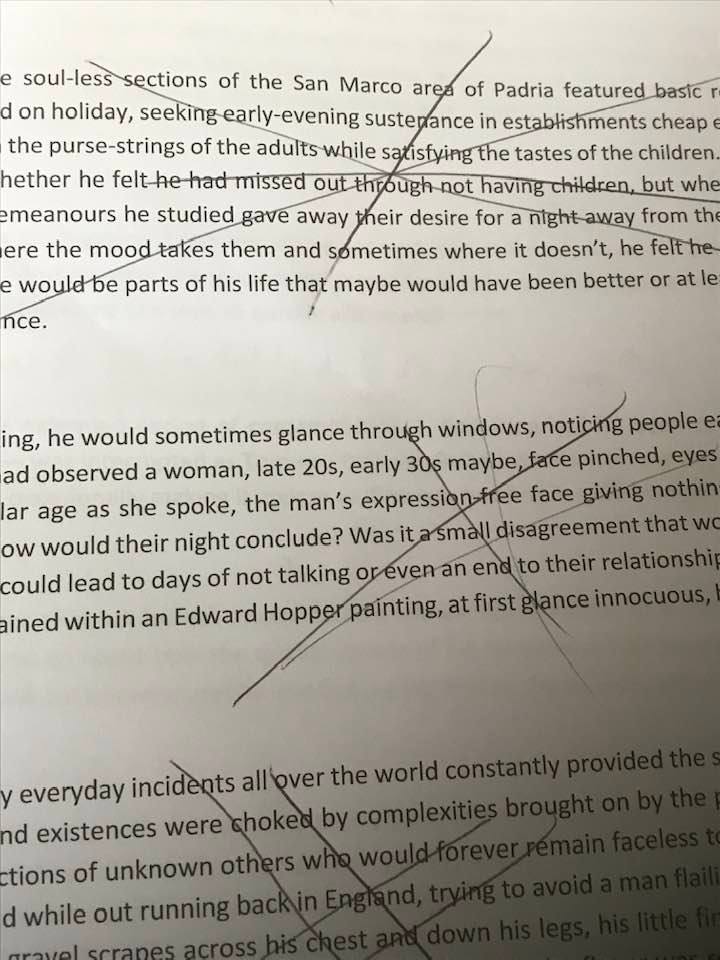
WRITING my first novel has involved a far too steep learning curve.
Don't just write it, prepare. Do your research, develop your characters, plan out your plot.
I didn't do any of that. Hence, I'm on re-write number nine. At least I've learned a lot.
The hardest part was cutting. Removing words, sentences, paragraphs, whole chapters that I liked, but were in there for no other reason than that. I liked them, but they didn't fit the tone of the story.
So I cut, but not enough. So I cut again and again, adding more relevant content.
Over the next few weeks I will post some of the 30,000 words I' have chopped. They may or may not turn up in another story. They won't turn up in The Choreography of Ghosts.
This section was just too dark for what was to follow - a mistake my character Michael Morrison made when writing his second novel, as you will see here.
Those who worked the cloth that would eventually map this city learned to cut it in the hovels in which they brought up their families.
The clack, clack, clacking of the looms of the industrial revolution, weaving hope and despair, broke the backs of those men and women as canals and roads, and eventually the railway, brought people to and from this then bustling centre of trade, though the lives of families such as Morrison’s never really changed. They simply carried on toiling while the mill owners and dignitaries lived in their lavish expensive, expansive houses, just streets away yet a world apart from the densely packed council terraces that would eventually give way to sprawling estates and high-rises, with a grim pub or two chucked in to keep the grateful masses intoxicated and entertained.
Every time there were signs of improvement a depression took hold and the mills would close, remaining empty and decaying until another so-called boom and an accompanying redevelopment would be announced, and eventually luxury flats and business centres stood in unlikely juxtaposition alongside the pound shops, charity stores, cheap pubs and empty retail units. No real structure, no real plan, a once blank canvas daubed in cheap peeling paint.
Morrison felt he no longer knew who he was or what he might become. Who was he when he wrote those words in a book deemed far too dark? Those words, not dissimilar to those he had scribbled on his journey just now:
“Judgement day was upon him and what a foul day it was out in the dark lands where the black clouds spill their wells of tears and the winds rip out the hearts of cretinous lifeforms spewed into this wilderness of sickness, where he was now crawling. These were ugly times and the horror was all-pervasive.
“The nature we spurned was now our ruler; this earth fit only for the mass graves of those who followed any tune the evil piper played. We have made our decisions and there will be no second chance. We have walked away from a god warped through our blind indifference.
“When he spoke to us we did not listen, when he called to us we did not come, when he asked for help we were not there, when he needed a neighbour he found us wanting, but when he put temptation our way, oh how we rushed to answer its call.”